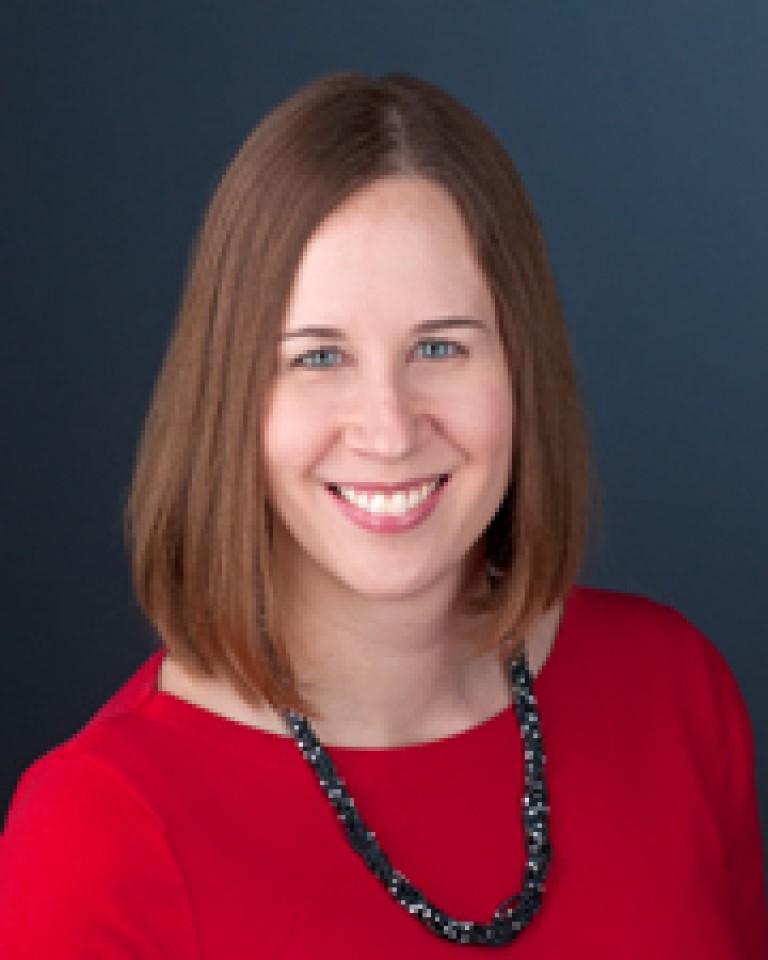Meagan Patterson

MENTOR SPOTLIGHT | FEBRUARY 2018
Department: Educational Psychology
Describe your work in a few sentences that we can all understand: I study the development of personal and group identity in children, as well as the ways that identity impacts other aspects of life, such as academic motivation and civic engagement.
Q: How did you first get interested in doing research?
A: My father worked as a clinical psychologist when I was growing up. When I started college, I wasn’t sure what I wanted to do for a career, but I knew that I definitely did not want to be a psychologist and listen to other people’s problems all day. I also really liked working with children but knew that I didn’t want to be a teacher. After trying out a few different majors, I found myself drawn to psychology—I loved learning about how people thought and felt and interacted with the world. I joined a research lab during my junior year and spent several years working on a project that involved going to families’ houses and interviewing parents and children. I really enjoyed the opportunity to talk with people one on one about things that were important to them and working collaboratively with the research team to pose questions and develop creative solutions to problems.
Q: What do students in your discipline learn by doing research that they wouldn’t learn by just taking classes?
A: When you read psychology textbooks or published research articles, the results and conclusions can seem obvious, or like they are just common sense. But when you conduct research, the picture you get is often more complicated and nuanced. Even if something is true in general, it’s not necessarily true for every person or every family. Also, research is unpredictable—sometimes you find results that aren’t what you expected, and you have to try to figure out why. Classes often don’t give you a sense of the challenges and setbacks involved in research, or the process by which we build knowledge out of both successes and failures.
Q: What do you find to be the most exciting part of doing research or creative work? What makes this line of work meaningful and interesting to you?
A: I really enjoy helping the students I work with to develop their ideas and design studies to explore their research questions. To me, research is always a fun and interesting puzzle to solve—what do we want to know and how can we find answers to our questions given the realities of our situation (what we can measure, who we can get to participate, etc.)?
Q: What advice do you have for undergraduates interested in doing research in your field?
A: Do it! Psychology is a big field, and there are lots of interesting questions that still need to be answered. Psychology also uses lots of different research methods (interviews, experiments, brain scans) so there are lots of different ways of conducting research to explore as well. Personally, I’ve particularly enjoyed the times when I’ve been able to use experimental methods in conducting psychological research.
Q: For many students, doing research or a larger creative project is the first time they have done work that routinely involves setbacks and the need to troubleshoot problems. Can you tell us about a time that your research didn’t go as expected? Or about any tricks or habits that you’ve developed to help you stay resilient in the face of obstacles?
A: It’s hard to choose just one example—this has happened to me lots of times! I think working with a team really helps. Even if a project isn’t going according to plan, I always enjoy spending time with my students and colleagues, and knowing that we are in this together helps me to persevere. I think it’s also important to maintain a sense of humor—if you can laugh about a problem together, it can’t be too bad.
Q: How do you spend your time outside of work?
A: I enjoy cooking, reading novels, practicing yoga, and going hiking and watching movies (especially documentaries) with my husband.